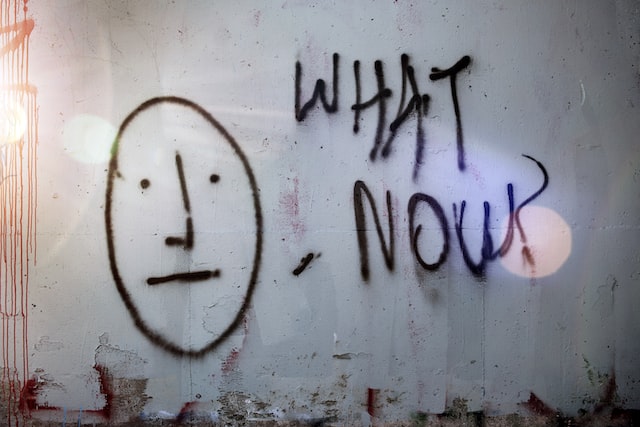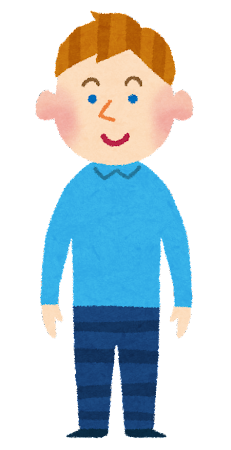ライフハックとしてではなく、英語学習にも極めて有用なのが、著名人が10分程度のプレゼンを行うTEDです。
TED Talksとは、あらゆる分野のエキスパートたちによるプレゼンテーションを無料で視聴できる動画配信サービスのことです。10年ほど前にサービスが開始されてから、政治、心理学、経済、日常生活などの幅広いコンテンツが視聴できることから人気を集めています。
RareJob English Lab
TEDは4000を超える膨大な数の動画があります。しかし慣れないうちは、動画の探し方や視聴のコツが分かりませんよね。この記事では、数多くのTEDを見てきた管理人(塩@saltandshio)が、心を揺さぶられたトークをあらすじと一緒にご紹介します。
ビジネス英会話を効率よく身につけたい方におすすめスクール
シェーン英会話
シェーンは1977年の創業以来、ネイティブ講師が英語を英語で教える「直接教授法」を採用しています。首都圏におけるスクール拠点数は、ネイティブ講師の英会話スクールでNo.1。駅から近いスクールが多いので通いやすく時間を有効に使えます。
スピークバディ パーソナルコーチング
1日1時間の短期集中トレーニングで、あなたの英語力向上をコーチが全力でサポートします。あなたの英語の世界が、劇的に変わります。
ジュリアン・バジーニ: 「本当の自分」は存在するか?
「あなた」を、「あなた」たらしめているものは何でしょうか?あなたの思う自分でしょうか?周囲の人の思うあなたでしょうか?それとも、まったく違う何かでしょうか?(約12分)。
[PR]無料体験レッスン実施中!全国208校、創業40年の老舗英会話スクール【シェーン英会話】自分の核はそもそもあるのか
本当の自分を探しに行こう、という類の本は自己啓発本によく見られますね。しかし、私たちにそもそも『本当の自分』はあるのでしょうか。私たちの文化には、自分に確固たる核のようなものがあり、それが隠れていたり、眠っているという考えがあります。
「自分らしさを定義するための何かが存在し、それは永続的で変化しない」とするものです。なかでも最も素朴なものは星占いの類です。
There is something about what it means to be you which defines you, and it’s kind of permanent and unchanging. The most kind of crude way in which we have it, are things like horoscopes.
ほかにも、血液型や生年月日で、『あなたはこういう人である』と定義づけているものは、世の中に多くあります。新聞にも雑誌にも必ず占いは載っていますよね。ただし、これらのものの中には『あなた』はいません。『その人らしさ』を総称してあらわしているものです。
では、本当の自分とはいったいなんなのでしょうか。ジュリアン・バジーニは、本当の自分というものはないと言います。代わりに、「人生経験を全て抱えた1人の人がいる」という考えを持っています。
[PR]まずは無料カウンセリング”続けるため”の オンライン英語コーチ「スピークバディ パーソナルコーチング」すべての中心に「あなた」はいない
私たちの中に、記憶や願望、意図、感覚、その他諸々は明らかに存在します。しかし実際には、これらのものは何らかの形で全てが統合され、重なり合ったり、様々な形で結びついたりしています。その結びつきは大きなものもあれば、小さなものもあるでしょう。
それらはひとつの体と、ひとつの脳に属していますが、では脳があなたの『本当の自分』かといえば、それは違いますよね。にもかかわらず、私たちは様々な経験を『自分の物語』として作り上げています。
そうであるからこそ、信念、願望、感覚、経験といったもの全ては関連しあって存在しており、その在り方が「あなた」に他なりません。
And so really, there are all these things, like beliefs, desires, sensations, experiences, they’re all related to each other, and that just is you.
つまり、私たちに『本当の自分』というものはなく、『本当の自分』は人生の全経験を蓄積された集合体である、とジュリアン・バジーニは言います。
[PR]しちだの魔法ペンなら35日でバイリンガルに!楽天4部門1位の英会話!<七田式>『私』は寄せ集めのコレクション
『本当の自分』は、『本当の自分』を構成する部品を合体させたものとすれば、体の各部位もまた『本当の自分』を構成するものといえます。例を出すと、心臓移植を受けても、『私』という人は同一人物です。ですが、記憶を移植されて『私』の信念が変わってしまったら、それは同一人物とはいえないかもしれません。
この、「自分はどんな人間か」……つまり、自己理解のあり方に関して、自分は経験を抱えた永続的な存在であると考えるのではなく、経験の寄せ集めであると考えるのは、ある種、奇妙に聞こえるかもしれません。
Now this idea, that what we are, the way to understand ourselves, is as not of some permanent being, which has experiences, but is kind of a collection of experiences, might strike you as kind of weird.
たとえば、水は分子の繋がりで出来ていますが、私たちは『水』としてしか認識していません。腕時計も多くの部品によって作られていますが、私たちはただ時計として見ているはずです。
さて、もし全ての物がこんなふうにできているとすれば、自分はそれと違うとなぜ言えるのでしょう?
Now if everything else in the universe is like this, why are we different?
つまり、私たちのなかに『本当の自分』があるのではなく、『本当の自分』を形作っている部品の寄せ集めである、というのがジュリアン・バジーニの考え方です。
[PR]知って得する、知らないと損をする!すぐに役立つ相手に合った「伝え方」のコツ!自分は常に変化している
ジュリアン・バジーニの考え方は、目新しいものではありません。仏教や多くの哲学で昔から言われていたものです。ですが、私たちの中に全ての事が生じる中枢のようなものは存在しないのであれば、自分という存在は幻想であって、自分というものは存在しないのでしょうか。
確かに「本当のあなた」はいません。
There is no real you.
ある心理学者は、「自分とは幻想であり、フィクションである」と言っています。しかし、水が水として存在しているように、私たちは確かにここに存在しています。よって、私たちは幻想ではありません。
では、『本当の自分』とは一体何なのか。一つの例としてジュリアン・バジーニはイグアスの滝を紹介します。イグアスの滝は、いろいろな意味で変化に富んでおり永続的な物はありません。滝を落ちる水は瞬間ごとに異なり、水は常に新しい流路を切り開いています。一度として同じ景色はありません。
ですが、私たちはこれを『イグアスの滝』だと認識しています。これは、自分を理解するための一つのモデルだとジュリアン・バジーニは言います。もし、『自分』というものがあって、それが永遠に変わらないものと考えているなら、私たちはずっと『囚われの身』になってしまいます。一年前の自分と、今の自分は違うはずです。髪の毛や爪だって日々のびています。自分を形作る核もまた、変化しているはずなのです。
[PR]検定試験合格者累計140万人!スマホ対応☆国家資格ほか資格取得ならSMART合格対策講座まとめ:自分は形作られるもの
私たちは、自分の目指す方向をある程度は自分で決めることが出来ます。ですが、それで世界的なロックスターになれるかというと、そういうわけではありません。
人が成し遂げられることには限界があります。どんな自分になれるかについても限界はあります。それにも関わらず、我々には自分で自分を形づくる一種の力があります。
There are limits to what we can achieve. There are limits to what we can make of ourselves. But nevertheless, we do have this capacity to, in a sense, shape ourselves.
『本当の自分』は、発見されるような性質のものではありませんし、心の中をのぞいても『本当の自分』は見つかりません。少なくとも部分的には、本当の自分は自ら作り出しているものです。では、『本当の自分』とはなんなのでしょうか。ジュリアン・バジーニは仏陀の言葉を引用しましたが、私たちには鴨長明の方丈記のほうがしっくりくるかもしれません。
ゆく河の流れは絶えずして、しかももとの水にあらず。淀みに浮かぶうたかたは、かつ消えかつ結びて、久しくとどまりたるためしなし。世の中にある人とすみかと、またかくのごとし。
鴨長明『方丈記』より
もし、『本当の自分』が存在するならば、それは発見によって見つけられる部分もあるかもしれません。ですが、自分で形作っていくことも出来るはずです。自分はいつでも変えることが出来る、そう思うとワクワクしますね。
英語全文
Is there a real you? This might seem to you like a very odd question. Because, you might ask, how do we find the real you, how do you know what the real you is? And so forth.
<全文を読む>▼クリック▼
The most kind of crude way in which we have it, are things like horoscopes. You know, people are very wedded to these, actually. People put them on their Facebook profile as though they are meaningul, you even know your Chinese horoscope as well. There are also more scientific versions of this, all sorts of ways of profiling personality type, such as the Myers-Briggs tests, for example. I don’t know if you’ve done those. A lot of companies use these for recruitment. You answer a lot of questions, and this is supposed to reveal something about your core personality. And of course, the popular fascination with this is enormous. In magazines like this, you’ll see, in the bottom left corner, they’ll advertise in virtually every issue some kind of personality thing. And if you pick up one of those magazines, it’s hard to resist, isn’t it? Doing the test to find what is your learning style, what is your loving style, or what is your working style? Are you this kind of person or that?
So I think that we have a common-sense idea that there is a kind of core or essence of ourselves to be discovered. And that this is kind of a permanent truth about ourselves, something that’s the same throughout life. Well, that’s the idea I want to challenge. And I have to say now, I’ll say it a bit later, but I’m not challenging this just because I’m weird, the challenge actually has a very, very long and distinguished history. Here’s the common-sense idea. There is you. You are the individuals you are, and you have this kind of core. Now in your life, what happens is that you, of course, accumulate different experiences and so forth. So you have memories, and these memories help to create what you are. You have desires, maybe for a cookie, maybe for something that we don’t want to talk about at 11 o’clock in the morning in a school. You will have beliefs. This is a number plate from someone in America. I don’t know whether this number plate, which says “messiah 1,” indicates that the driver believes in the messiah, or that they are the messiah. Either way, they have beliefs about messiahs. We have knowledge. We have sensations and experiences as well. It’s not just intellectual things. So this is kind of the common-sense model, I think, of what a person is. There is a person who has all the things that make up our life experiences.
But the suggestion I want to put to you today is that there’s something fundamentally wrong with this model. And I can show you what’s wrong with one click. Which is there isn’t actually a “you” at the heart of all these experiences. Strange thought? Well, maybe not. What is there, then? Well, clearly there are memories, desires, intentions, sensations, and so forth. But what happens is these things exist, and they’re kind of all integrated, they’re overlapped, they’re connected in various different ways. They’re connecting partly, and perhaps even mainly, because they all belong to one body and one brain. But there’s also a narrative, a story we tell about ourselves, the experiences we have when we remember past things. We do things because of other things. So what we desire is partly a result of what we believe, and what we remember is also informing us what we know. And so really, there are all these things, like beliefs, desires, sensations, experiences, they’re all related to each other, and that just is you. In some ways, it’s a small difference from the common-sense understanding. In some ways, it’s a massive one.
It’s the shift between thinking of yourself as a thing which has all the experiences of life, and thinking of yourself as simply that collection of all experiences in life. You are the sum of your parts. Now those parts are also physical parts, of course, brains, bodies and legs and things, but they aren’t so important, actually. If you have a heart transplant, you’re still the same person. If you have a memory transplant, are you the same person? If you have a belief transplant, would you be the same person? Now this idea, that what we are, the way to understand ourselves, is as not of some permanent being, which has experiences, but is kind of a collection of experiences, might strike you as kind of weird.
But actually, I don’t think it should be weird. In a way, it’s common sense. Because I just invite you to think about, by comparison, think about pretty much anything else in the universe, maybe apart from the very most fundamental forces or powers. Let’s take something like water. Now my science isn’t very good. We might say something like water has two parts hydrogen and one parts oxygen, right? We all know that. I hope no one in this room thinks that what that means is there is a thing called water, and attached to it are hydrogen and oxygen atoms, and that’s what water is. Of course we don’t. We understand, very easily, very straightforwardly, that water is nothing more than the hydrogen and oxygen molecules suitably arranged. Everything else in the universe is the same. There’s no mystery about my watch, for example. We say the watch has a face, and hands, and a mechanism and a battery, But what we really mean is, we don’t think there is a thing called the watch to which we then attach all these bits. We understand very clearly that you get the parts of the watch, you put them together, and you create a watch. Now if everything else in the universe is like this, why are we different?
Why think of ourselves as somehow not just being a collection of all our parts, but somehow being a separate, permanent entity which has those parts? Now this view is not particularly new, actually. It has quite a long lineage. You find it in Buddhism, you find it in 17th, 18th-century philosophy going through to the current day, people like Locke and Hume. But interestingly, it’s also a view increasingly being heard reinforced by neuroscience. This is Paul Broks, he’s a clinical neuropsychologist, and he says this: “We have a deep intuition that there is a core, an essence there, and it’s hard to shake off, probably impossible to shake off, I suspect. But it’s true that neuroscience shows that there is no centre in the brain where things do all come together.” So when you look at the brain, and you look at how the brain makes possible a sense of self, you find that there isn’t a central control spot in the brain. There is no kind of center where everything happens. There are lots of different processes in the brain, all of which operate, in a way, quite independently. But it’s because of the way that they relate that we get this sense of self. The term I use in the book, I call it the ego trick. It’s like a mechanical trick. It’s not that we don’t exist, it’s just that the trick is to make us feel that inside of us is something more unified than is really there.
Now you might think this is a worrying idea. You might think that if it’s true, that for each one of us there is no abiding core of self, no permanent essence, does that mean that really, the self is an illusion? Does it mean that we really don’t exist? There is no real you. Well, a lot of people actually do use this talk of illusion and so forth. These are three psychologists, Thomas Metzinger, Bruce Hood, Susan Blackmore, a lot of these people do talk the language of illusion, the self is an illusion, it’s a fiction. But I don’t think this is a very helpful way of looking at it. Go back to the watch. The watch isn’t an illusion, because there is nothing to the watch other than a collection of its parts. In the same way, we’re not illusions either. The fact that we are, in some ways, just this very, very complex collection, ordered collection of things, does not mean we’re not real. I can give you a very sort of rough metaphor for this. Let’s take something like a waterfall. These are the Iguazu Falls, in Argentina. Now if you take something like this, you can appreciate the fact that in lots of ways, there’s nothing permanent about this. For one thing, it’s always changing. The waters are always carving new channels. with changes and tides and the weather, some things dry up, new things are created. Of course the water that flows through the waterfall is different every single instance. But it doesn’t mean that the Iguazu Falls are an illusion. It doesn’t mean it’s not real. What it means is we have to understand what it is as something which has a history, has certain things that keep it together, but it’s a process, it’s fluid, it’s forever changing.
Now that, I think, is a model for understanding ourselves, and I think it’s a liberating model. Because if you think that you have this fixed, permanent essence, which is always the same, throughout your life, no matter what, in a sense you’re kind of trapped. You’re born with an essence, that’s what you are until you die, if you believe in an afterlife, maybe you continue. But if you think of yourself as being, in a way, not a thing as such, but a kind of a process, something that is changing, then I think that’s quite liberating. Because unlike the the waterfalls, we actually have the capacity to channel the direction of our development for ourselves to a certain degree. Now we’ve got to be careful here, right? If you watch the X-Factor too much, you might buy into this idea that we can all be whatever we want to be. That’s not true. I’ve heard some fantastic musicians this morning, and I am very confident that I could in no way be as good as them. I could practice hard and maybe be good, but I don’t have that really natural ability. There are limits to what we can achieve. There are limits to what we can make of ourselves. But nevertheless, we do have this capacity to, in a sense, shape ourselves. The true self, as it were then, is not something that is just there for you to discover, you don’t sort of look into your soul and find your true self, What you are partly doing, at least, is actually creating your true self. And this, I think, is very, very significant, particularly at this stage of life you’re at. You’ll be aware of the fact how much of you changed over recent years. If you have any videos of yourself,three or four years ago, you probably feel embarrassed because you don’t recognize yourself.
So I want to get that message over, that what we need to do is think about ourselves as things that we can shape, and channel and change. This is the Buddha, again: “Well-makers lead the water, fletchers bend the arrow, carpenters bend a log of wood, wise people fashion themselves.” And that’s the idea I want to leave you with, that your true self is not something that you will have to go searching for, as a mystery, and maybe never ever find. To the extent you have a true self, it’s something that you in part discover, but in part create. and that, I think, is a liberating and exciting prospect. Thank you very much.
<閉じる>
\ ほかにも気になるトークが満載! /








